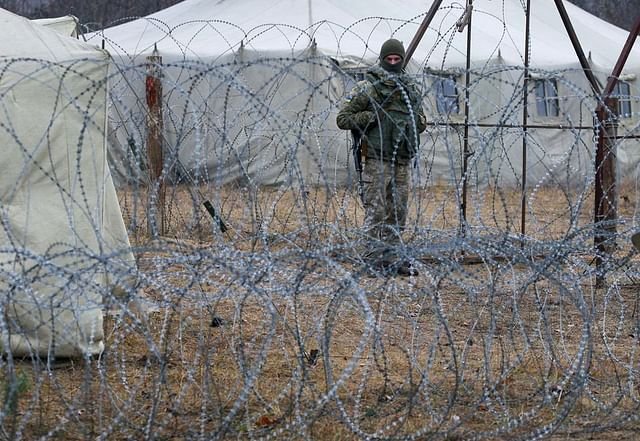Despite fears that Russian President Vladimir Putin could order troops to invade Ukraine, Ukrainians still hold the top spot in terms of the number of immigrants living in the country. According to 2017 estimates by Kiev officials, about 3 million Ukrainians live in Russia. Among them are pro-Russian Ukrainians, as well as migrant workers who send remittances to their home countries. Among them are former residents of the Russian-backed self-proclaimed ‘republic’ of Luhansk and Donetsk in eastern Ukraine. Al Jazeera has published a report on what these Ukrainian citizens living in Russia think about the current crisis in Ukraine and who they are blaming for the current situation.
Ivan Alekseevich is a Ukrainian citizen living in Russia. The 6-year-old moved to Kirve, Russia, from Luhansk, Ukraine, four years ago. Kirve is located 800 kilometers northeast of Moscow.
Ivan told Al Jazeera: “Even though I am now a Russian citizen, I still consider Ukraine my motherland. I was born there. I studied in the school there. I got good quality education there. ‘
Explaining why he came to Kirve from Luhansk, Ivan said: ‘We were at peace in Luhansk with our children. However, in 2014 we fell prey to mortar attacks. As soon as I got out of the building where I was staying, a mortar shell flew over my head. My wife and I were hiding in the basement. Mortar shells were fired day and night. I was in Angola after serving in the army in the 1960’s. I saw the war situation there. I never imagined that something like this would happen here too. ‘
Russian President Vladimir Putin has often said that the citizens of Russia, Ukraine and Belarus are the same. They are a divided nation. In addition, many Russians, such as AMA fighter Fedor Emilelienko, are of Ukrainian descent. Author Nikolai Gogol was also of Ukrainian descent.
The language, history and culture of the two neighboring countries, Russia and Ukraine, are also very close. Although there is controversy over the idea that they are the same race. A look at Russia’s or Soviet Union’s 100-year history shows that Russia and Ukraine did not have the same closeness to each other.
In the 1930s, Joseph Stalin’s agricultural policies led to the starvation of millions of Ukrainians, known as the “bread baskets of the Soviet Union.” This painful history has been at the center of the conflict between the two countries since Ukraine became independent in 1991.
In March 2014, the rebels in eastern Ukraine annexed Crimea, on the shores of the Black Sea, to Russia through a referendum they had organized. In that vote, the majority voted in favor of joining Russia. Moscow has always said that Crimea was annexed by Russia in accordance with the democratic process, international law and the constitution of the United Nations. Eastern rebels demanded greater autonomy for their territory from Kiev. However, the central government of Ukraine did not recognize them. Ivan Alekseevich, a Ukrainian citizen, blames the Ukrainian government for the situation.
The town of Mariupol in the Donetsk region on the coast of the Azov Sea is an emotional destination for Russians. In 2014-15, government forces stopped several advance efforts of the rebels. Lina, 30, was once a resident of the city. She is currently living in St. Petersburg, Russia. He hopes to return to his homeland Ukraine one day.
“My husband came here earlier to work,” Lina told Al Jazeera. And after the shooting started, I also left with my children. ‘ Lina said she did not receive as much cooperation from the Russian authorities as she had hoped.
Lina said, ‘Finding an apartment with a small child was a difficult task. If you don’t have documents, you can’t get a job. Nothing found. The task of raising a child was difficult for me. Because, he needed food, he needed clothes. I even thought of going back to the country. I had to go to their office and complain. But after getting the documents, everything has become much easier. ‘
Lina left Mariupol after the fight broke out in 2014.
Asked who would be responsible for the ongoing situation in Ukraine, Lina said: “The United States is 100% responsible. Of course, there is no doubt about it.

